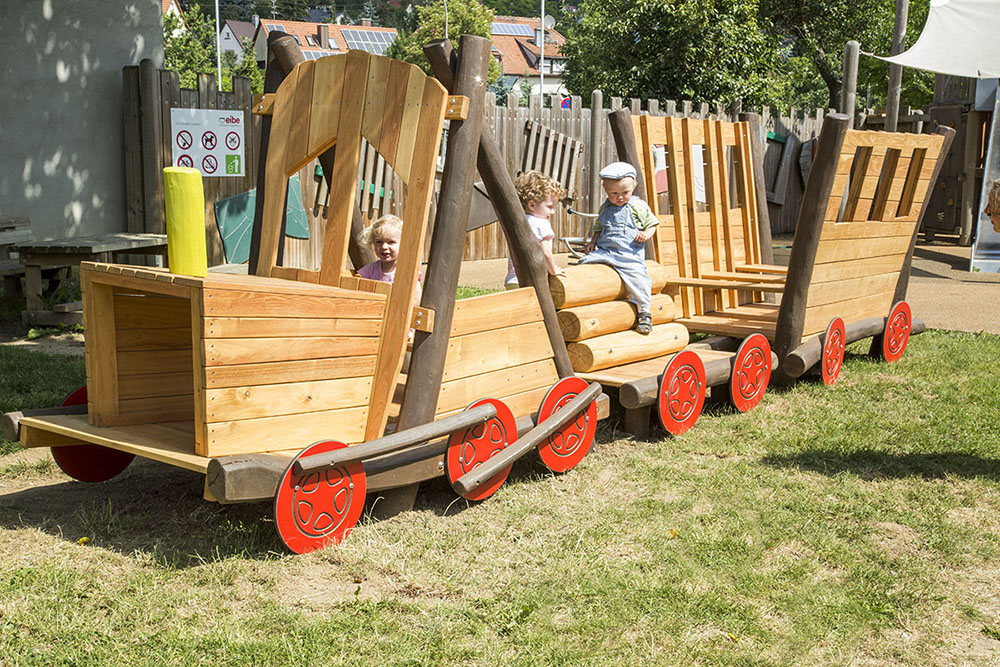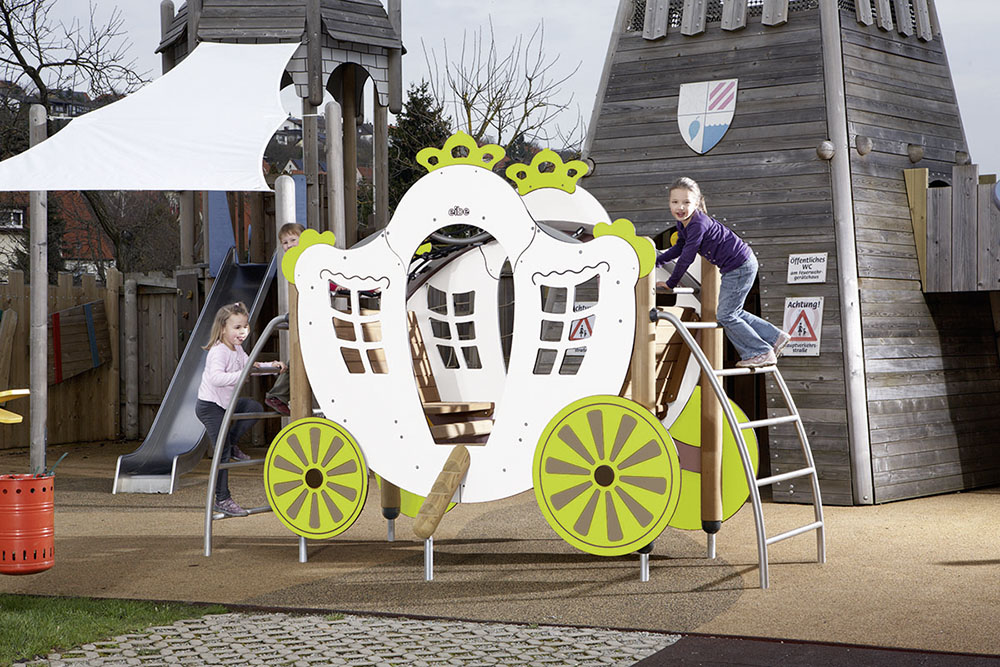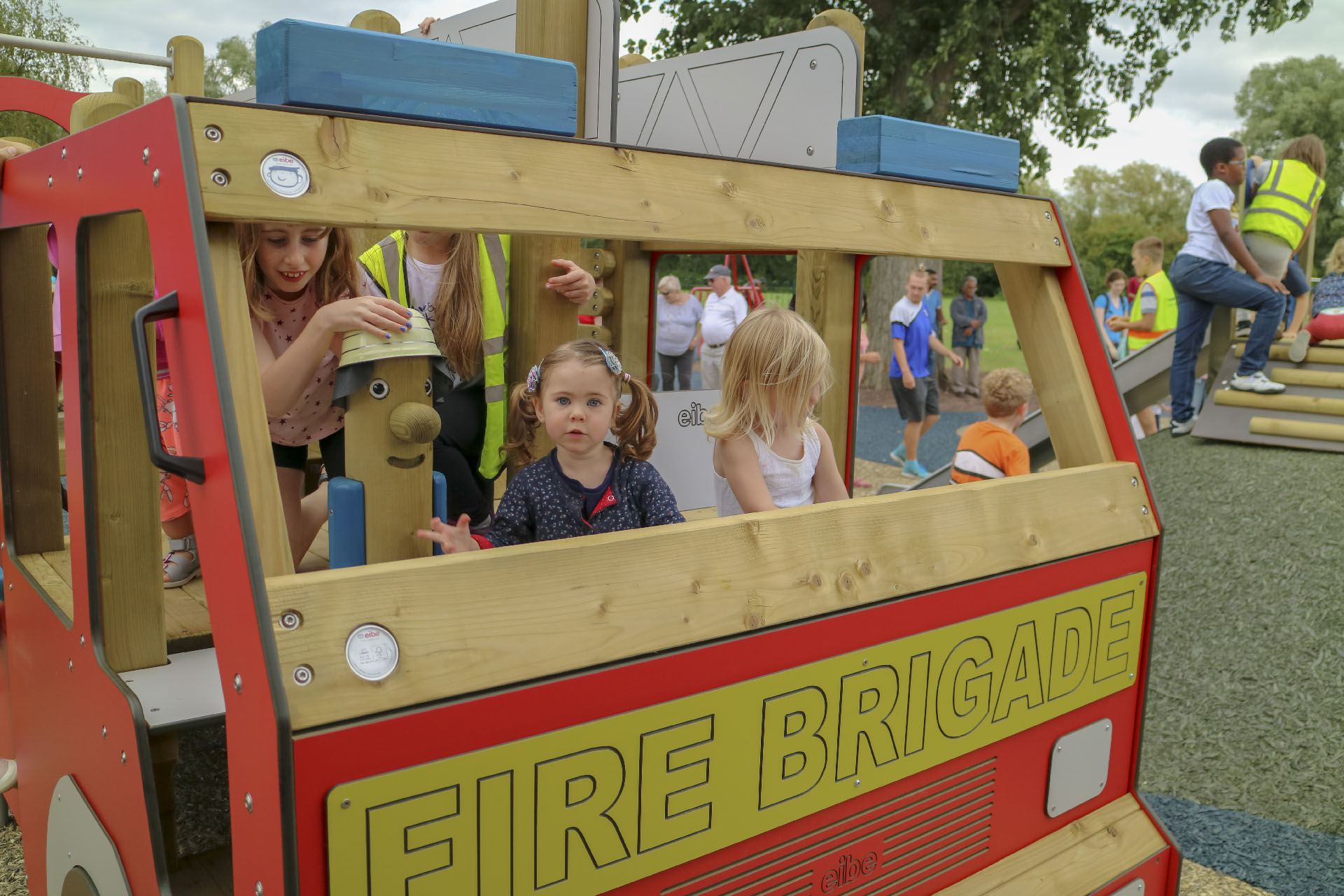Baking sand cakes, trudging through the supposed primaeval forest as a Stone Age family or playing the classic “father, mother, child” game. When children take on different roles, alone or in a group, experts do not speak of mere play. They talk about an essential milestone in the lives of the little ones, which is indispensable for child development. But how important are roleplaying games? Children learn a lot from the playful exchange of roles and also train their imagination. In the following, you will learn how exactly roleplaying encourages children.
Table of content
- What are role plays?
- When do children start roleplaying?
- What does role play mean for child development?
- What exactly does role play promote in children?
- Do children play better on their own or with guidance?
- Encourage children to change roles with props and the like.
- Conclusion: Roleplay is important for children’s development
What are role plays?
In role play, a fictitious transformation staged by the child takes place. The child plays another person, an animal or a fantasy creature. During role play, however, the child does not imitate but actively plays the new role. He or she empathises with the role and can decide for him- or herself how the action will unfold. Children often stage everyday situations that occupy them. But fantasies also find their realisation in role play. In “father, mother, child” play, children can process experiences from family life, reenact everyday events in the role of a doctor or merchant and experience them from a different perspective. As princesses or knights, children live out fantasies and create a whole new world.
Objects and places can take on new, different meanings during role play. A wooden spoon might become a sword, a stone, a secret key, a building corner, a castle or a climbing frame, a spider’s web. Children are able to distinguish between reality and fiction but still experience the play as emotionally real. This is an ability that we adults have lost.

Travelling with the Trans-Siberian Railway or the Orient Express? On the Cosmo railway theme play structure from eibe, little children become conductors, long-distance travellers and much more.
When do children start roleplaying?
The age at which children start roleplaying also depends on their stage of development. From the age of 2, a child can “pretend”. In these first role plays, children usually imitate the behaviour or actions of other people in individual play. A preliminary form of role play for young children is parallel play. Here, the children observe and imitate each other. For example, one child imitates a telephone conversation. Another child takes up the idea but does not enter into a joint role play with the first child. In this way, children can imitate parental actions with a doll at an early age. However, the doll can also be seen as a “baby” far from fiction. Objects often serve as a “key” into the fictional world of role play. With increasing age, however, children manage to do it without tools. From the age of 4 onwards, play actions also become more complex, and the role reversal can be carried out as a group activity.
What does role play mean for child development?
Joint role play promotes important competencies within child development. Role play offers children the opportunity to overcome fears and crises or to live out fantasies. Role play can also be an outlet for aggression and a way to resolve conflicts. Social skills and rule awareness are also trained: Children have to stick to the roles agreed upon in the group for the duration of the game or renegotiate them if they are dissatisfied.
The use of language also benefits from roleplaying: Children learn to use language independently of the communicative context to “decontextualise” it. When a banana becomes a telephone, a linguistic reinterpretation takes place. Children assign the meaning “telephone” to the object “banana” for the course of the game. Different roles also encourage different language behaviour and certain idioms. Since the action in roleplaying with several children is spontaneous, children also have to step out of their role again and again and make arrangements or react directly to their fellow players in the game.
If children scold their fictitious children excessively in the role play “father-mother-child”, parents should examine their own behaviour in family life.
What exactly do role plays promote in children?
- Linguistic expressiveness
- Processing of everyday events
- Dealing with fears and conflict situations
- Creativity, fantasy and imagination: Children can test out ideas and constantly think up new actions, game variations or fantasy worlds.
- Social behaviour and emotional empathy: children learn to put themselves in other people’s shoes in role play, to accept the ideas of others and to deal with rules in the group
- Building healthy self-esteem and strengthening self-confidence
- Planning and controlling actions
By the way: roleplaying also encourages children to move, for example, when hunting for treasure. And movement is essential for child development. Read here how to motivate children to exercise!

Fairytales come true at this castle-themed playground with a yew carriage! Because here children can slip into the role of princes and princesses or bold knights.
Do children play better on their own or with guidance?
In order to be able to learn important social skills in role play, children must become active themselves and play on their own initiative. Even the decision for an action or the distribution of roles within a group trains the children’s social skills. Nevertheless, parents or educators can support role play in a targeted way without taking the direction away from the child. Adults can let their role be assigned by the child and be passive in the play. The role of the tired mother who falls asleep, for example, can be a small impulse for children to facilitate their way into role play.
Encourage children to change roles with props
First and foremost, children need a place that gives them space and incentives to play and gives them the opportunity to reflect on experiences they have had, to act them out on their own, to reenact them or to re-create them in the group. For role play in the kindergarten, this could be a special role play room, a building corner or little houses and playground equipment in the garden. Furthermore, adults can support role play by providing props: A box filled with various everyday objects, such as hats, handbags, jewellery or scarves, provides a great incentive for play. Theme playgrounds can also be the basis of a role play. A pirate ship or a fire engine are ideal bridges into the child’s fantasy world. A theme that is dealt with over a longer period of time or the reading aloud of a story can also actively promote role play. In this way, the children are provided with “fodder”, so to speak, which they can take up in free play.
By the way, children can also easily make their own props from natural materials. What do they need? Stones, sticks and other natural materials or pine cones, for example.
Conclusion: Role-playing is important for children’s development
As in many areas of child development, the beneficial character of role play lies in the active engagement of children with their environment. As soon as they start interacting with other children, they have to communicate, abide by specific rules, assert their own ideas and tolerate others. Therefore, playing together is the best way to build social and language skills and to strengthen self-confidence. In the playful realisation of fantasies, creativity and imagination are naturally also encouraged. In role play, children can be the person they have always wanted to be. Fears and crises can also be overcome and solved more easily through play. Roleplaying for children is the ideal basis for safely testing out all kinds of life situations on their own initiative.
We adults often find it difficult to give children free rein in their daily activities. In our blog post “Promoting self-awareness in children”, we explain how important not only self-direction in role play, but also a little risk is for children’s development.

